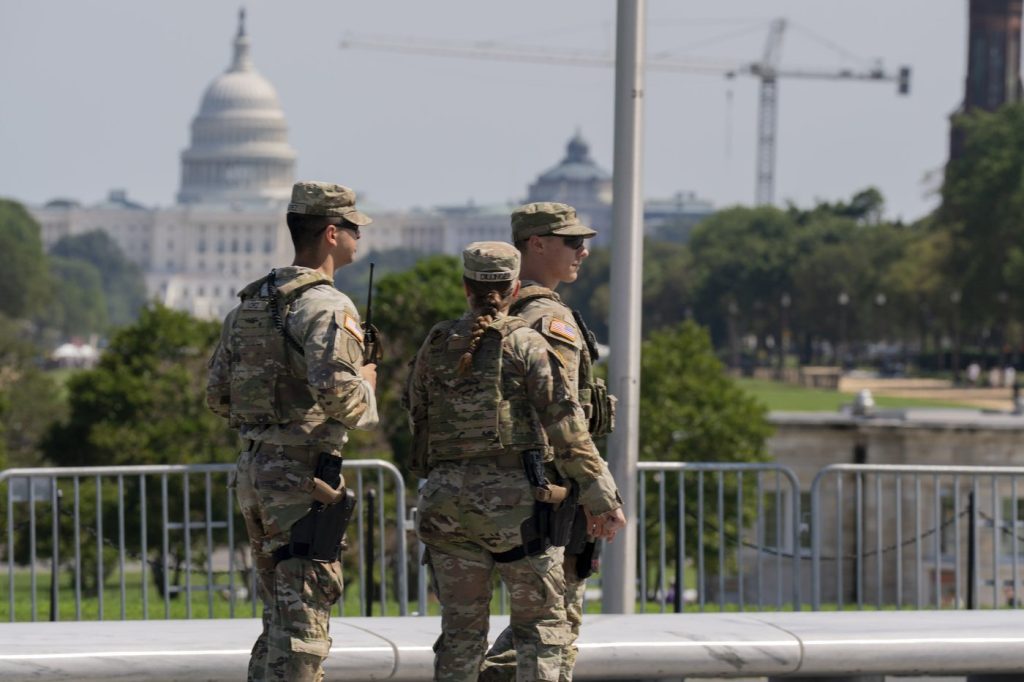More than 50 individuals have encountered federal charges in Washington, D.C., since President Donald Trump's controversial emergency law-and-order initiative commenced in August. Despite the high number of arrests touted by the administration, prosecutors have already dropped at least 11 cases, a dismissal rate that has raised concerns among judges regarding efficiency and resource wastage in the judicial system.
This significant number of case dismissals reveals the potential pitfalls of Trump's emergency surge strategy, which has resulted in an influx of arrests but often lacks the evidentiary support needed for successful prosecutions. Several of the more serious cases, including charges of assault against federal agents and gun-related offenses, have collapsed before even reaching trial.
On a recent Tuesday, U.S. Magistrate Judge Matthew Sharbaugh dismissed two felony assault cases at the request of U.S. Attorney Jeanine Pirro's office. He expressed strong concern during court proceedings, questioning whether the prosecutorial decisions were made without thorough investigations. Judge Sharbaugh remarked, "That’s not the way it’s supposed to work, and it has real-world consequences," emphasizing the growing apprehension about the sheer volume of cases entering the court system.
This dissatisfaction is not limited to the bench. Grand juries have notably rejected indictments at least eight times in six different cases related to Trump’s surge, which is an unusual occurrence that highlights doubts about the evidence supporting these prosecutions.
Trump argues that his emergency deployment of federal agents and National Guard members is contributing to increased safety for residents of the District of Columbia. One such case involved Scott Pichon, arrested for allegedly spitting on members of the South Carolina Army National Guard outside Union Station on August 22. Prosecutors dropped the felony assault charge, reclassifying the case as a misdemeanor handled in D.C. Superior Court.
In another instance, Paul Nguyen faced charges for allegedly assaulting a federal agent who attempted to break up a street fight on August 23. In this case, prosecutors completely abandoned felony charges without introducing new accusations against Nguyen, who, during his court appearance, displayed his arm in a sling, having sustained a broken arm during his arrest.
Nguyen described his weeks in custody as "the scariest experience of my life" when speaking with reporters post-hearing. During the proceedings, Judge Sharbaugh inquired about the rationale for dropping the felony charges, but prosecutors indicated their decisions stemmed from evidence evaluations without detailing specific issues.
The White House has reported that over 2,000 arrests have occurred since the federal intervention began on August 7, with at least 52 individuals charged in district court concerning surge-related offenses. Numerous additional cases have been processed in D.C. Superior Court.
Tim Lauer, a spokesperson for U.S. Attorney Pirro, defended the office's performance, asserting that decisions were made based on evidence, with a commitment to pursuing justice that includes dismissing cases when appropriate. Sharbaugh, one of four magistrate judges overseeing initial court proceedings for surge-related charges in district court, underlined the increasing pressures faced by the judicial system due to the volume of cases.
Judge Zia Faruqui, commenting on the situation earlier in the month, expressed that the handling of these cases has damaged the reputation of Pirro's office. He noted that the office often pursued cases best suited for state court and unnecessarily detained individuals for extended periods while evaluating charges.
Pirro, a former Fox News host appointed by Trump in May, criticized Faruqui for allegedly allowing his political beliefs to interfere with his legal judgment. She also expressed dissatisfaction with grand juries refusing to indict individuals facing serious charges, indicating, "The system here is broken on many levels."










